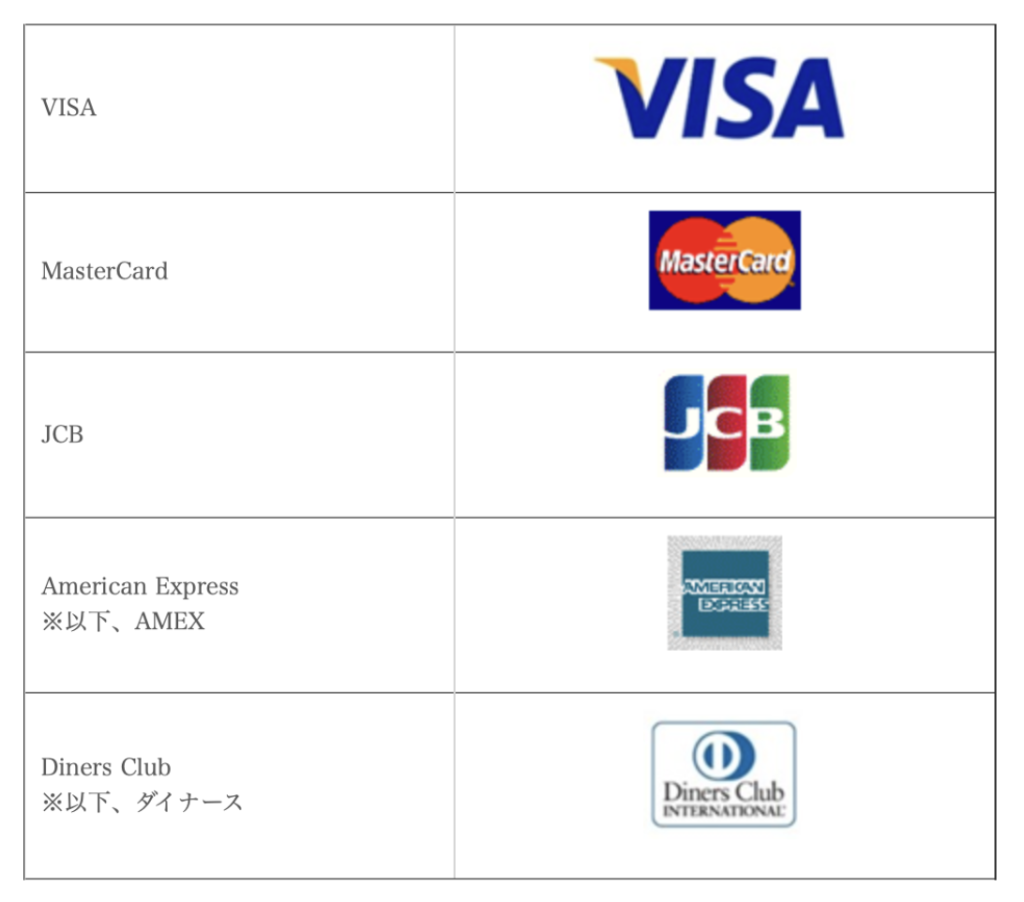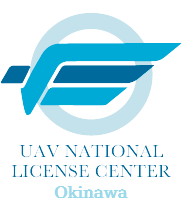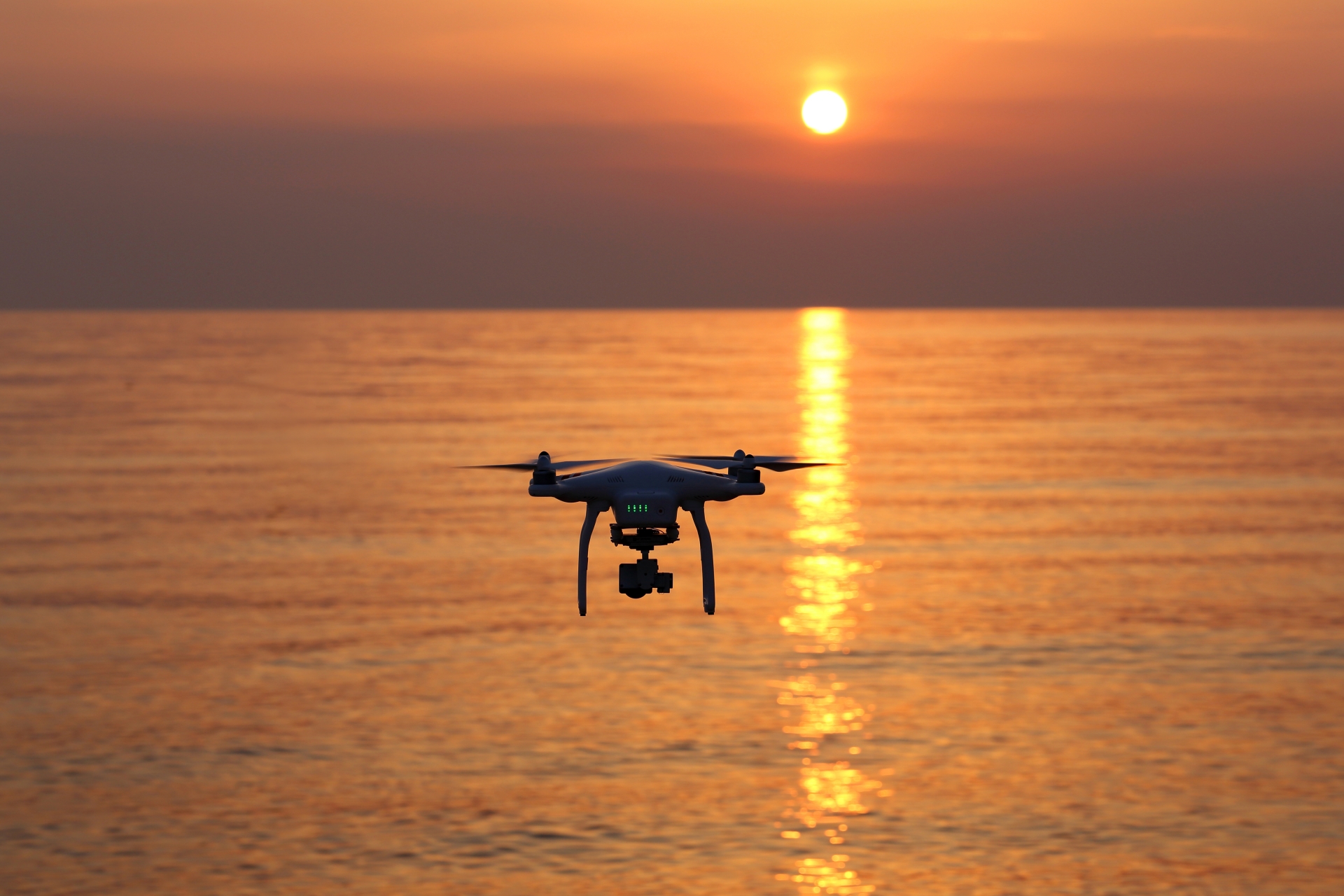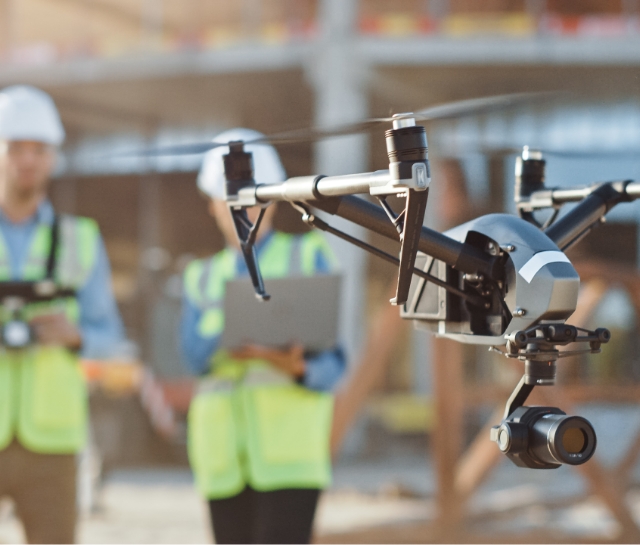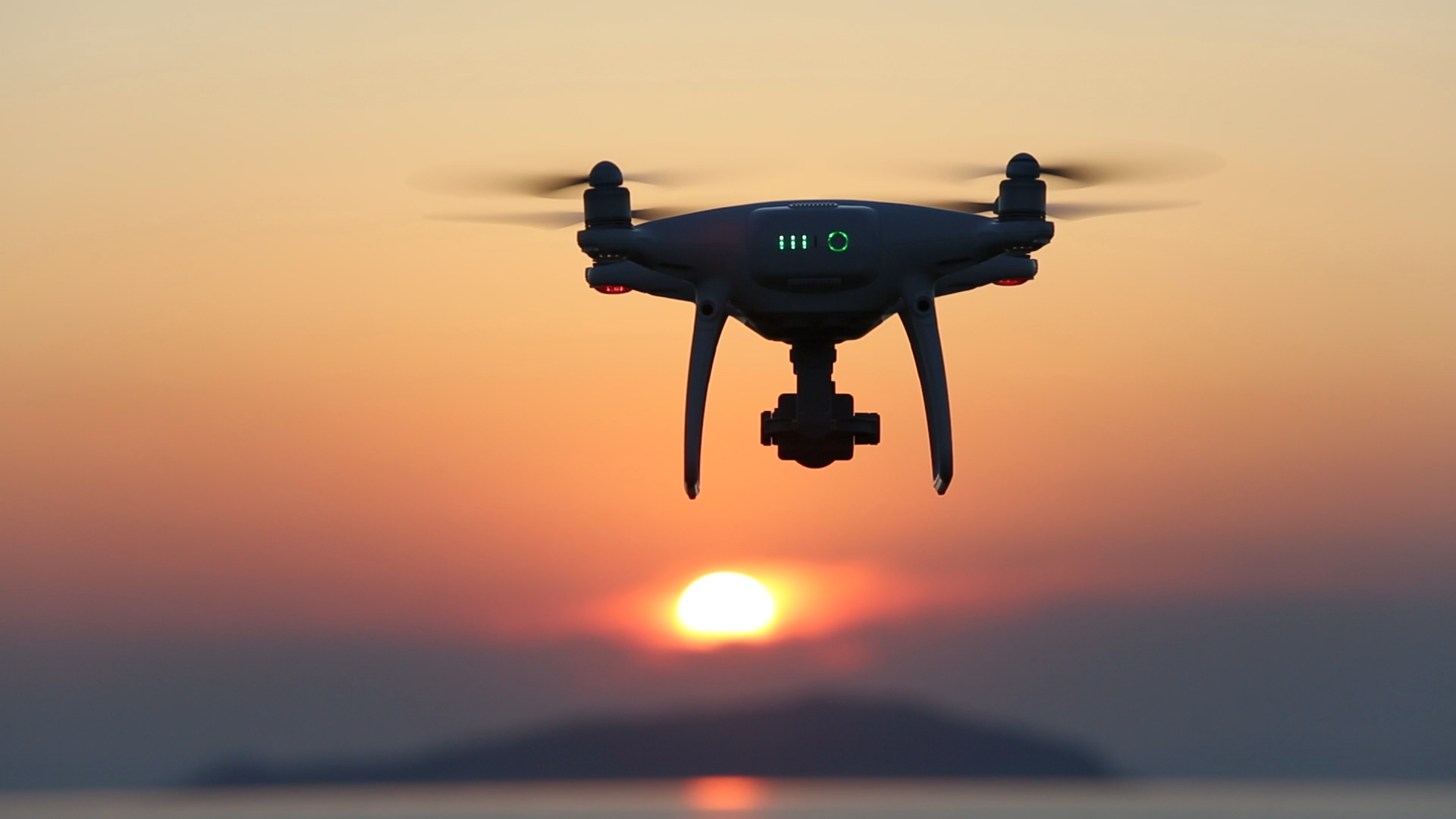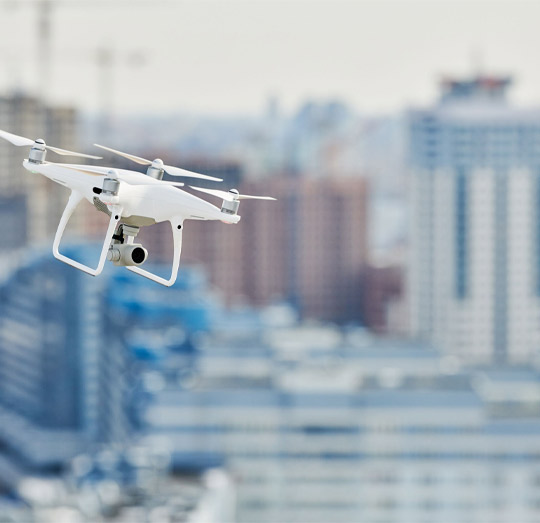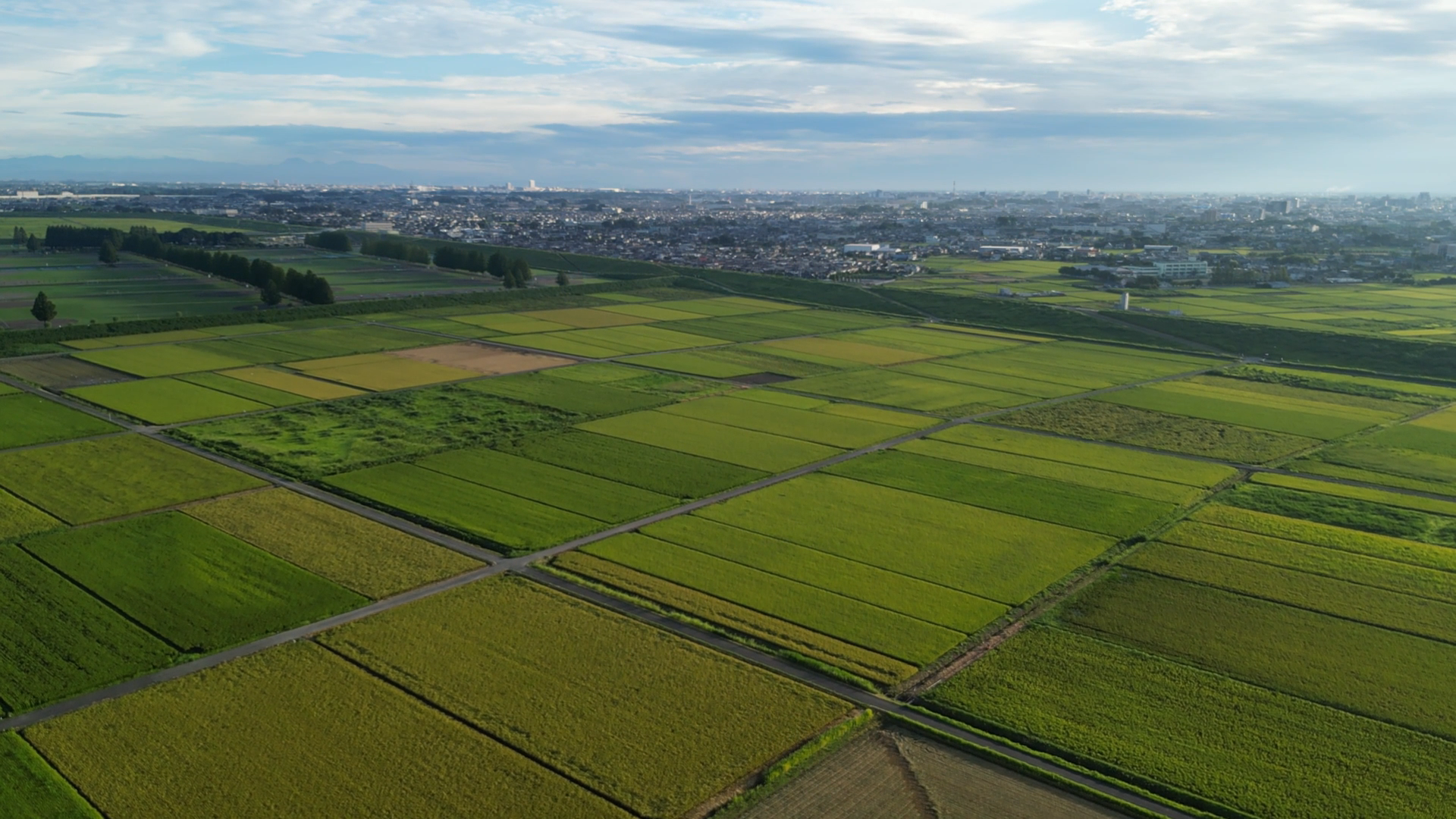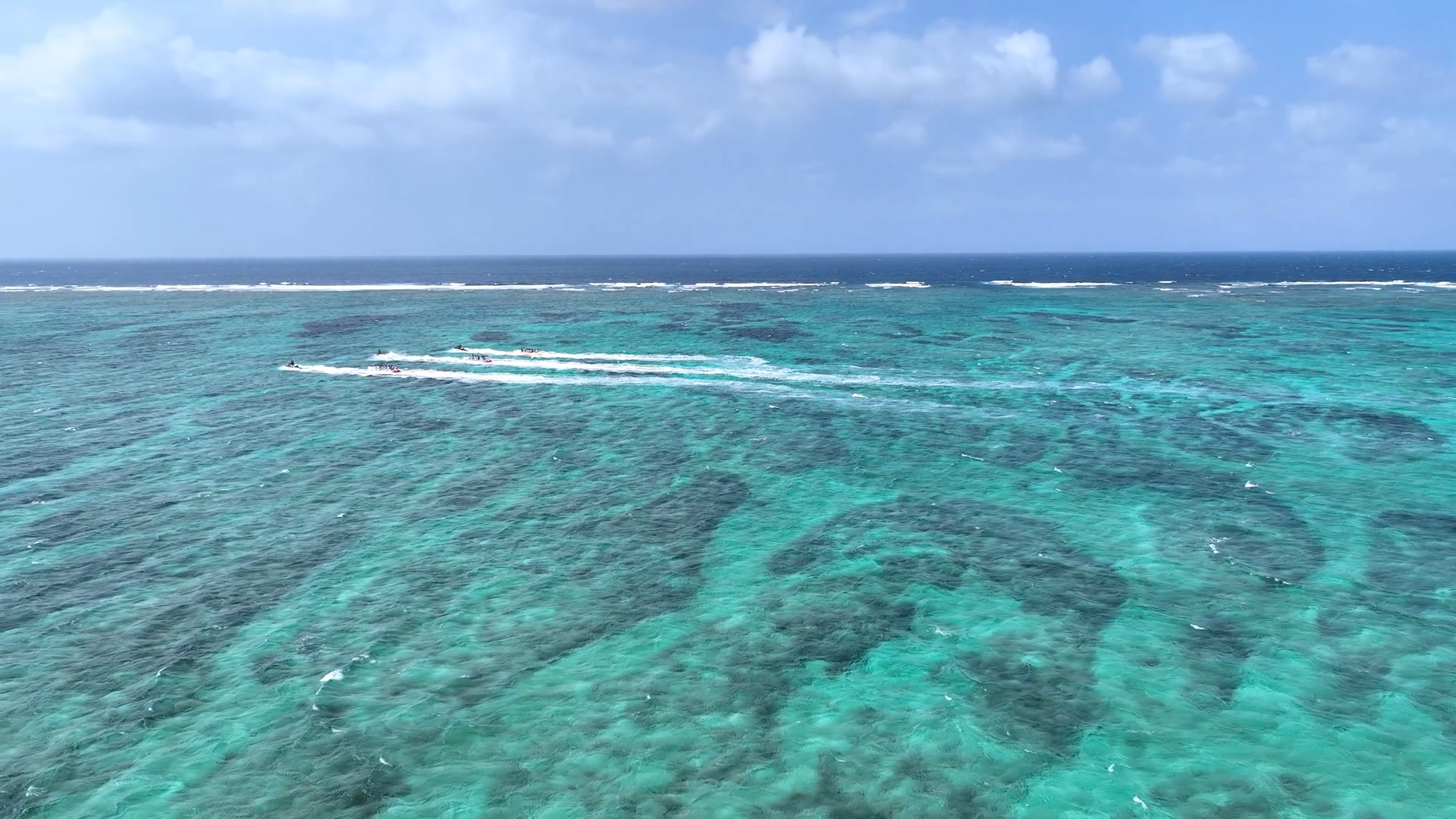We often receive inquiries from people who are considering taking a course and want to know how to apply for a course.
“I don't know how to apply for a training course.”
Where do I apply for a technical certificate applicant number?
“Where do I apply for the exam?”
“I passed the exam, but how do I get a national license?”
We receive many inquiries such as “I don't know how to apply for a training course.
Currently, obtaining a national license is a time-consuming process that involves creating and applying for multiple accounts, such as obtaining a proficiency certificate applicant number, physical examination, and applying for a waiver of the practical test.
【For pre-applicants】Click here to download the application guide for pre-applicants.
※The application guidebooks for the “Application for the Departmental Examination,” “Physical Examination,” “Application for Exemption from the Practical Test,” and “Issuance of a New Skills Certificate” will be shared directly with course applicants.
The information on the various application guides will be shared directly with the course applicant.
It is the same as a driver's license for a car.
The “Unmanned Aircraft Operator Proficiency Certification System” is a new qualification system that certifies that an individual has the necessary skills (knowledge and ability) to fly an unmanned aircraft. The “Unmanned Aircraft Operator Technical Skills Certification System” is a certification that an individual possesses the necessary skills to fly an unmanned aircraft. This is what you often refer to as a “national license.
Proficiency certificates are classified as “first class” or “second class,” depending on whether or not the intended flight is subject to entry control measures. A person who holds a competence certificate must carry it with him or her when conducting a specified flight.
Holders of first class proficiency certificates are now allowed to fly at level 4 (unassisted, unobserved flight in a manned area), which was not previously allowed.
Holders of a second class certificate are no longer required to obtain the following permits and approvals
Over the DID area
Flights over DID zones
Nighttime flights
Flight within a distance of less than 30 meters from a person or object
However, even after acquiring a second class certificate, permission and approval will continue to be required for the following types of flights
Around the airport
Altitude 150m or higher
Over the event
Transportation of hazardous materials
Dangerous goods transport
Summary
The certification is classified into first class unmanned aircraft pilot (first class certification) and second class unmanned aircraft pilot (second class certification).
The validity period for both first and second class certificates is three years.
Night and over-the-air flights are possible with a change in the limitations of the certificate.
The age for eligibility is 16 years old or older.
Those who have completed a training course at a government-registered training organization are exempted from taking a practical test at a designated testing organization.
✅For more information, check out the online information session (video)♪
Once a national license is obtained, drones can be operated in densely populated areas (DID), at night, out of sight, and within 30 meters without a permit or approval, which previously required a national permit or approval.
In addition, operators who operate drones in the field in various situations will be classified as “national license holders” and “national license non-holders.
In such cases, it is expected that being a “national license holder” will be a criterion for the ordering party.
The national qualification (proficiency certification) not only fulfills one of the requirements for not requiring a flight permit or approval, but also directly affects the credibility and trust of the operator as an operator of an unmanned aircraft.
✅For more information, check out the online information session (video)♪
It is easy to understand if you imagine a driving school as a driving school for a car license.
In order to effectively utilize the know-how and resources of the more than 1,400 private drone schools that already exist, and to facilitate the issuance of the large number and expected increase in the number of pilot licenses, the government may exempt those who have completed a course at a private institution that provides training of a certain standard or higher from the entire practical test. In light of this, the government has decided to implement a registered training institute to facilitate the issuance of pilot licenses.
Based on this, those who take a practical skills course conducted by a registered training organization are exempted from the practical test.
However, since the “final examination,” which is similar to the practical examination, is conducted, please take the practical training course to acquire pilot training, and make sure you are well prepared to pass the final examination.
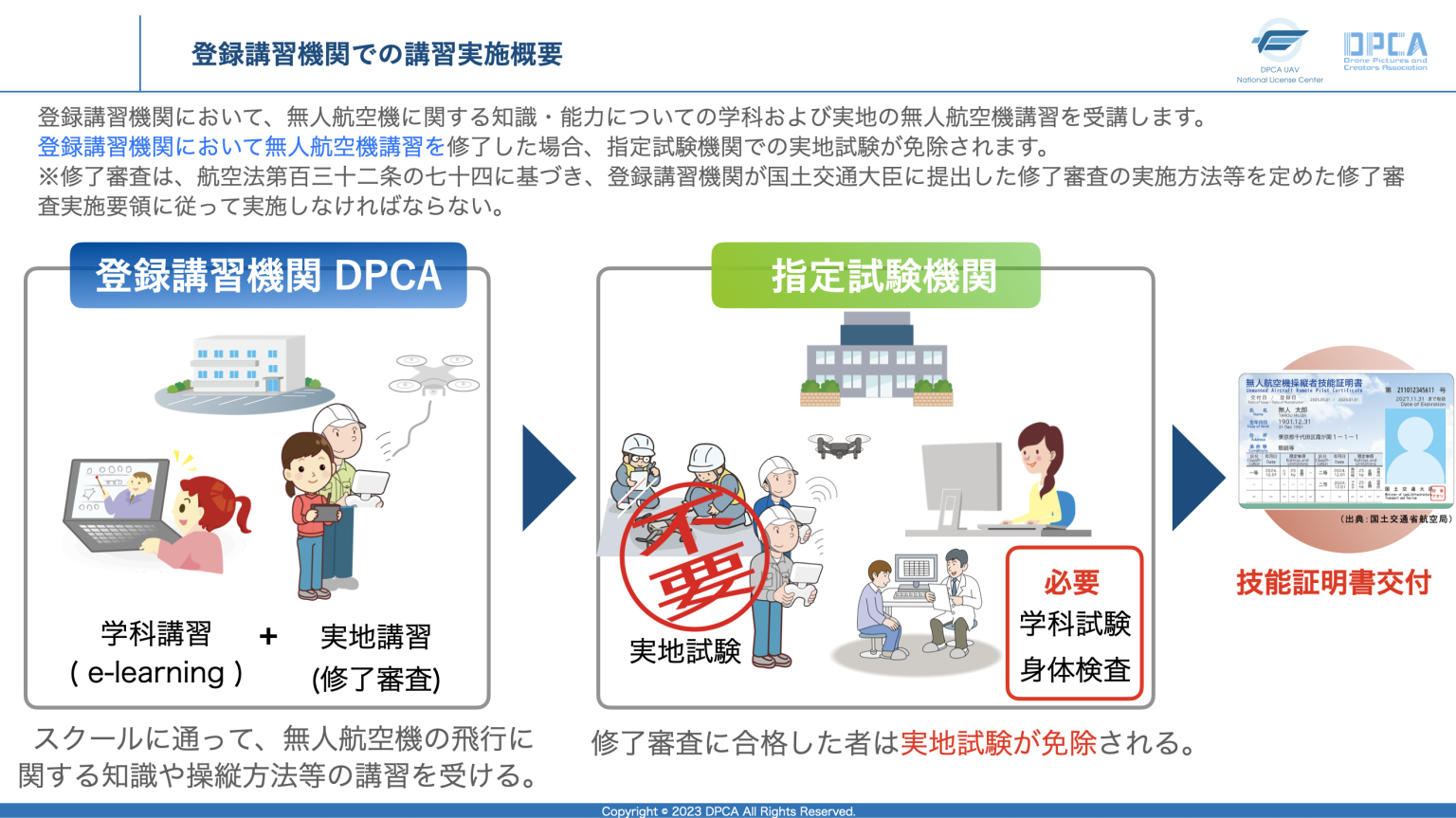
✅For more information, check out the online information session (video)♪
It is easier to understand if you imagine a driver's license examination center in the case of a car license.
A designated testing agency is an organization designated by the government to conduct the affairs related to the implementation of the proficiency test. The designated examining agency is in charge of all first and second class examinations, and from the perspective of ensuring fairness and neutrality, one corporation is authorized nationwide to administer the academic and practical examinations. The designated examining organization is the Nippon Kaiji Kyokai.
Check out the Unmanned Aircraft Pilot site here.
This question is often asked by our office.
The following is the opinion of DPCA, a registered training organization
✅For more information, check out the online information session (video)♪
【 指定試験機関 】
まず、指定試験機関での実地試験は、あくまで「試験」です。
試験当日の操縦技能試験はいわゆる「点」での測定に留まります。
実際の一発試験(実地試験)の合格率は低い水準に留まっており、経験者であっても難易度が高いと言えます。
試験は机上試験〜口述試験〜実技試験〜口述試験の順番で実施されます。
そこには事前の練習は当然ながらありません。試験会場に赴き受付を済ませると試験が進んでいきます。
試験対策を十分に行い、自信を持って挑める方は一回の費用を比較しても実地試験にチャレンジされた方が良いでしょう。
また、「試験」ですので、試験後に試験官から講評などはありません。明確な不合格理由があれば次回に向けて対策を講じることができますが、
自分の中で「合格した」と思って「不合格」だった場合、どこが合格に至らなかったのかが分からず対策の講じようがありません。
実際に、とある実地試験受験者はこれまでに実地試験を3回、4回と受け不合格となり「自分がどこが悪かったのかが分からないから対策ができない」と相談をいただきました。
【 登録講習機関 】
一方、
登録講習機関は、講習を通じて、継続的に操縦技能を付与・確認することができる「線」としての効果に加え、安全意識・遵法意識をしっかり植え付けることができ、講習修了後も更なる知識・技能の向上を目指す「面」としての効果も期待されています。
登録講習機関では受講費用は実地試験受験費と比較すると一回あたりの金額は高くなりますが、単純に費用だけで比較できない総合的なメリットが多くあります。
登録講習機関では実地試験が免除される代わりに、実地試験に準じた「修了審査」が行われます。
この修了審査も机上審査〜口述審査〜実技審査〜口述審査の順番で実施されます。
しかし、実地試験との大きな違いとしては、修了審査の前に実技講習の機会が必ずある点です。
つまり、実技講習を通じて修了審査対策を行った上で、修了審査に挑むことができることが大きな利点と言えます。
実技講習中に口述審査の対策も行い、苦手な操縦練習も行い実技審査を見据えた訓練が行うことができます。
仮に修了審査に不合格となった場合でも、どこがダメだったのかという講評もさせていただきますので再審査の対策も講じることができます。
また、学科講習を通じて関連法令への理解、リスクマネジメントなど操縦者として必要な最新の知識、ノウハウを学びます。学科試験対策の役割も担います。
【 まとめ 】
我々登録講習機関 DPCAは、国家ライセンス取得のための単なる「予備校」ではなく、高い安全意識・遵法意識を有する操縦者の効果的な養成に全国の仲間たちと連携して本気で取り組んでいます。
以上の要素を総合的に勘案し、指定試験機関 or 登録講習機関どちらで技能証明を取得されるか検討していただきたいと考えます。
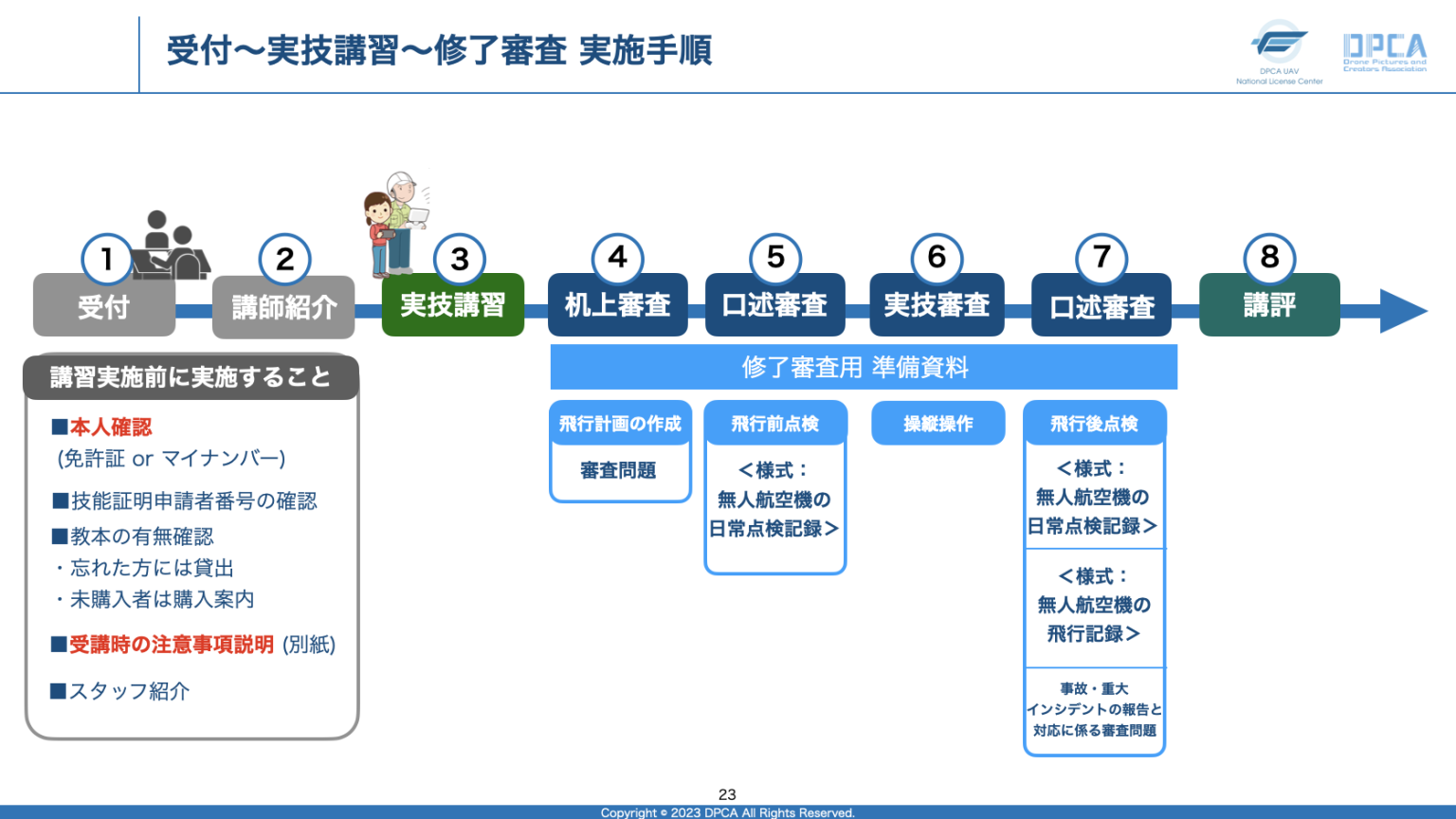


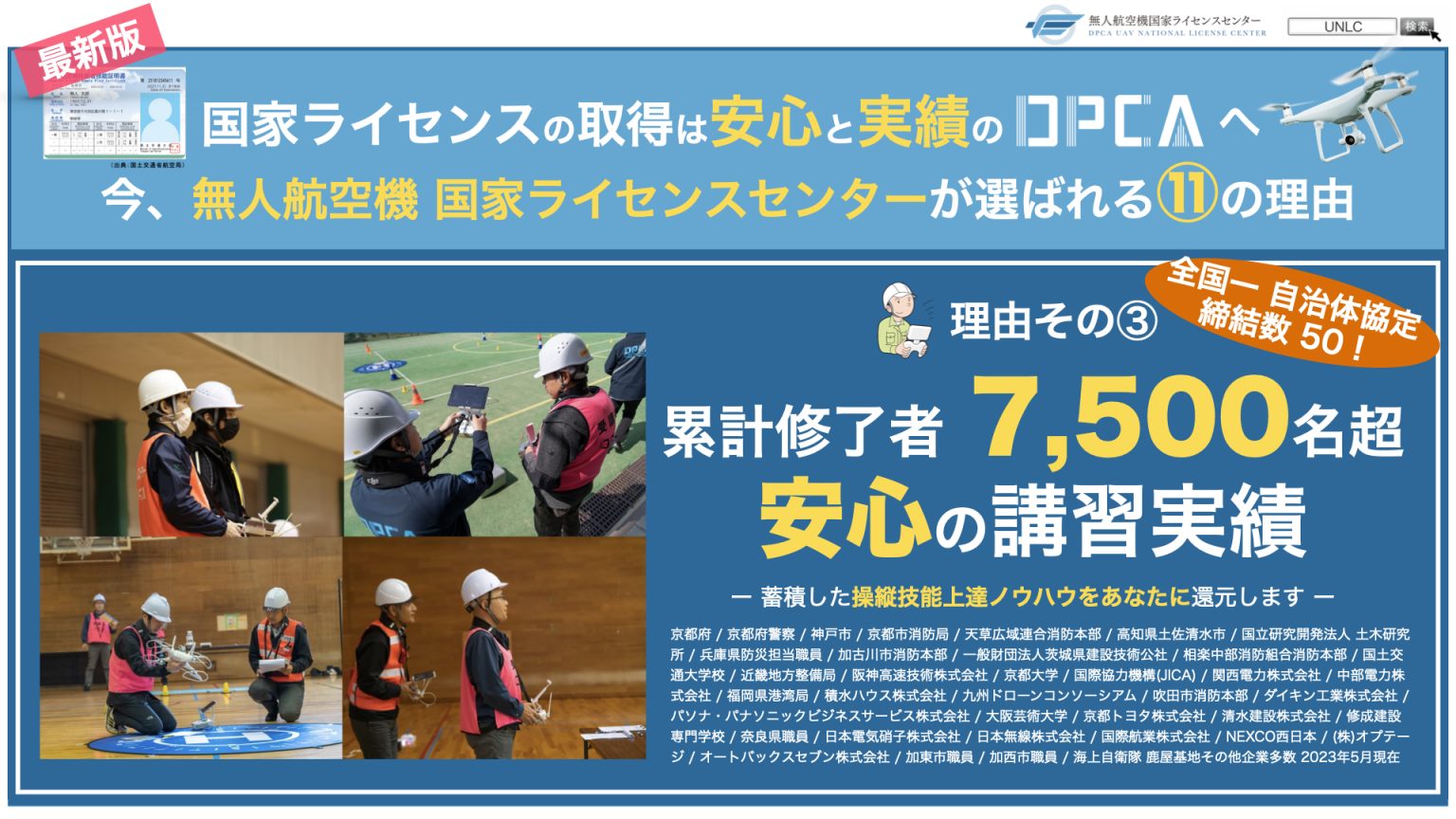
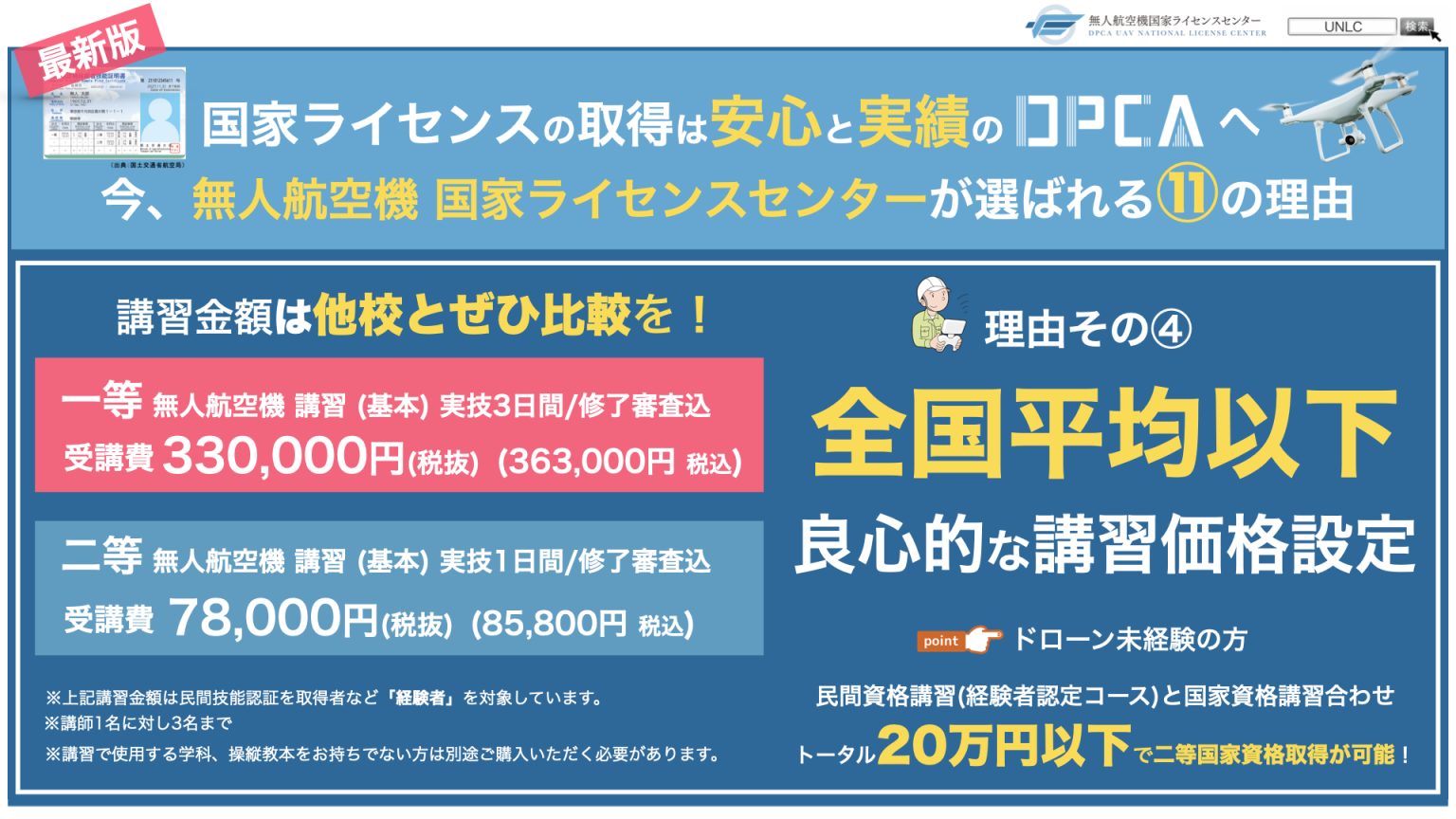
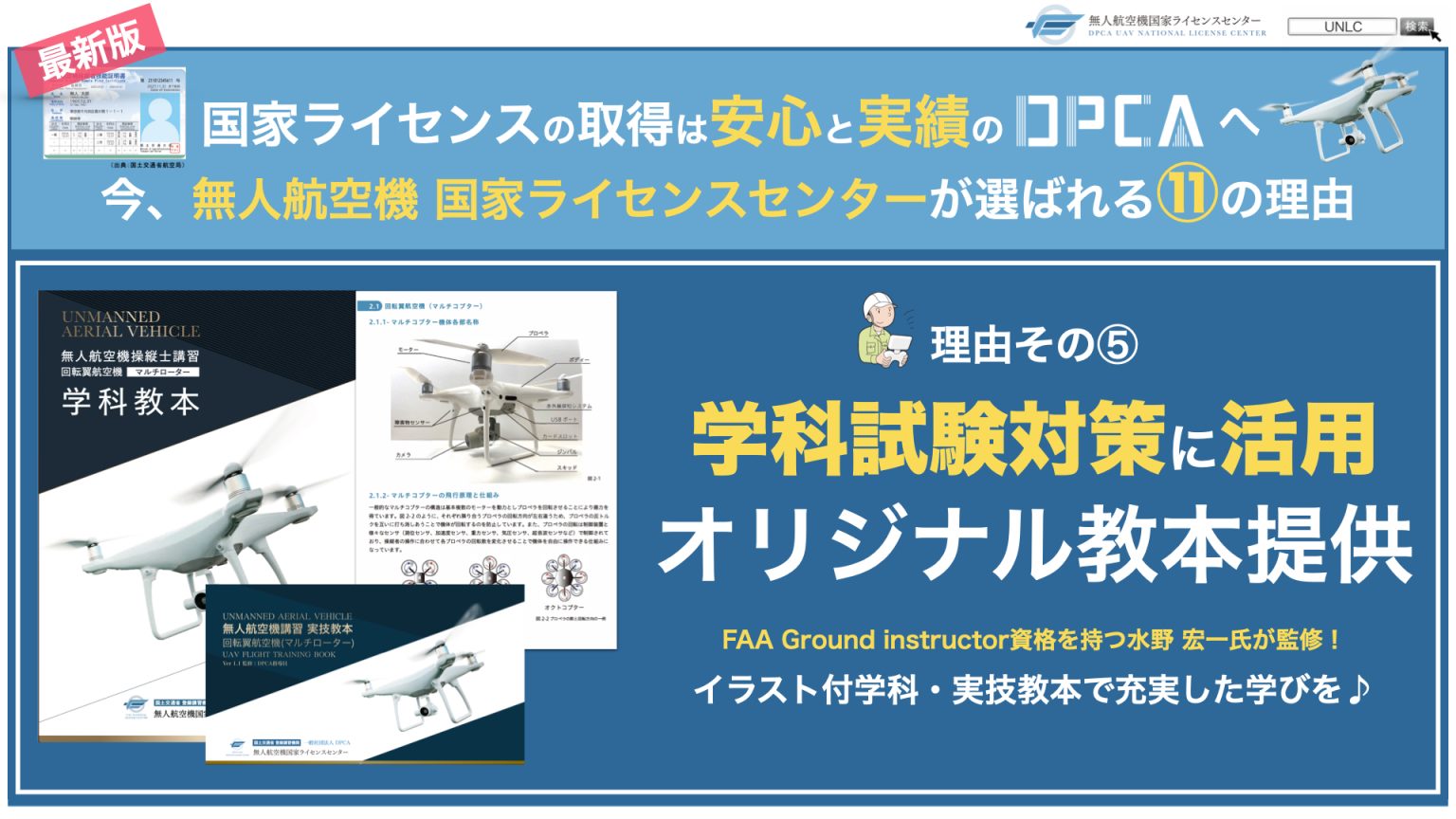

■Applications for the National Licensing Course can be made at the following link.
Click here to download the guidebook.
※The application forms for the “Application for the Departmental Examination,” “Physical Examination,” “Application for Exemption from the Practical Examination,” and “Issuance of a New Skills Certificate” will be provided directly to the applicant.
[Experience.]Course Recommendation! For more information and to register for the 2nd Class Unmanned Aerial Vehicle Course, click here♪
[Experience.]For more information and to register for the First Class Unmanned Aerial Vehicle Training Course, click here♪
【Those with piloting blanks】Follow-up course for second class final examination (1 day)
Click here to see the schedule and application form.
Note: In order to apply for the National License Course, you must obtain a “Proficiency Certificate Applicant Number”.
※To obtain a “Proficiency Certificate Applicant Number,” click here.
✅For more information, check out the online information session (video) ♪
Attention when applying for a course】 - Please make sure to check before applying for a course.
When taking a course for a national license at a registered training institute DPCA Kyoto, you will be required to enter your “applicant number for proficiency certification” when applying for the course.
The “Proficiency Certificate Applicant Number” is required when applying to take an unmanned aircraft course at a registered training institute or when applying to take an examination at a designated testing institute. By obtaining this number, applicants do not need to be identified each time they apply for certification. In addition, when obtaining a “Proficiency Certificate Applicant Number,” it is necessary to register the “Office Code” of the registered training institute you wish to attend.
You can obtain a “Proficiency Certificate Applicant Number” and register your office code here.
Step-by-step instructions: STEP① Enter applicant information → STEP② After completing the entry, proceed to the “Training Organization Information” page → STEP③ Enter the symbol [ T0098001 ] in the “Registered Training Organization Office Code 1” field. DPCA Kyoto Main Campus will be displayed. → Click “Select” when the DPCA Kyoto Campus is displayed, then proceed to the next step to confirm the application information and complete the application.
The code is different for each branch school of the Unmanned Aircraft National License Center.
※1:DIPS is the Drone Information Platform System operated and managed by the Civil Aviation Bureau of the Ministry of Land, Infrastructure, Transport and Tourism.
Click here to download the guidebook.
*An application guidebook for “Application for the Departmental Examination,” “Physical Examination,” “Application for Exemption from the Practical Examination,” and “Issuance of a New Skills Certificate” will be provided directly to applicants for the course.
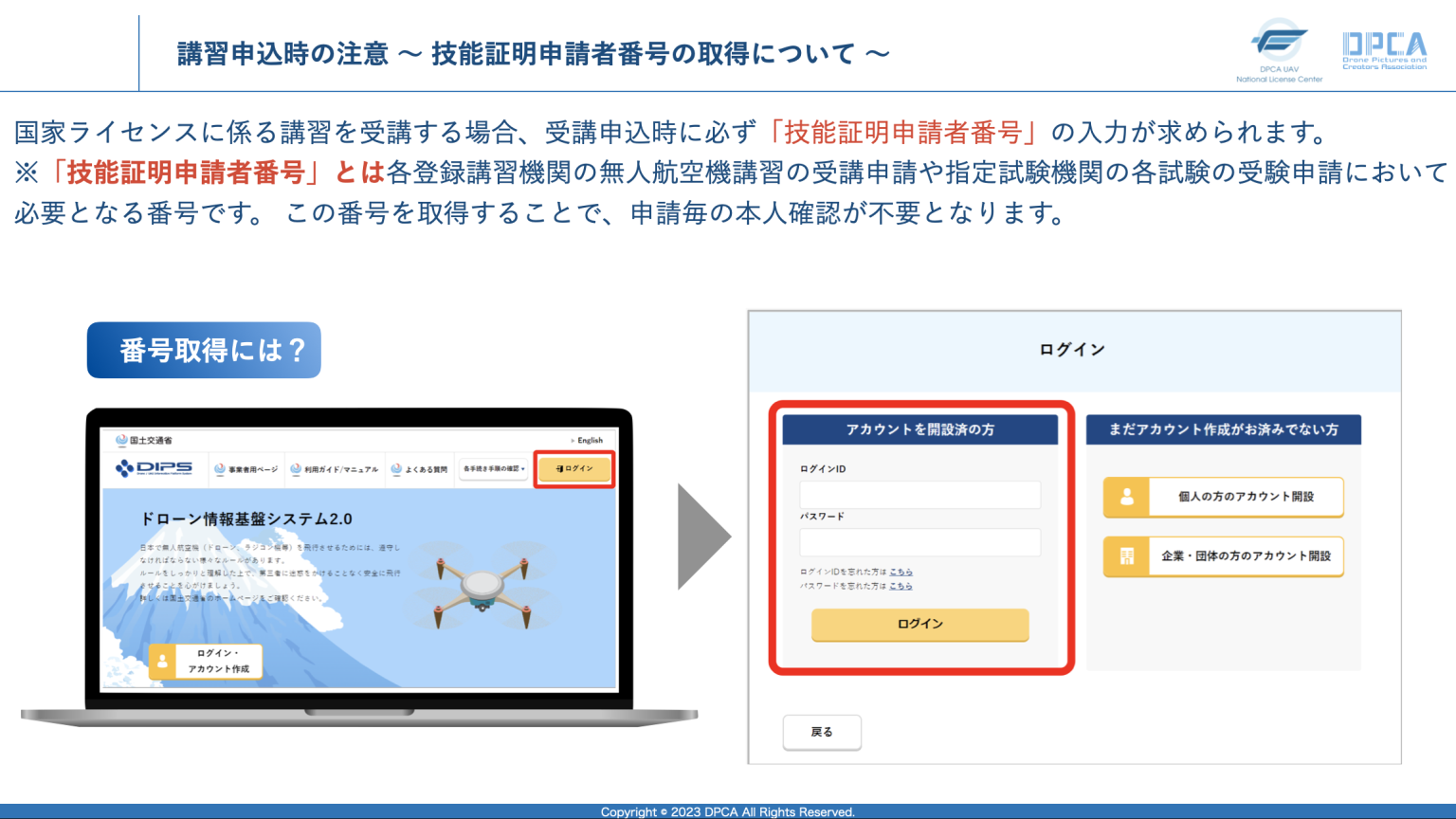
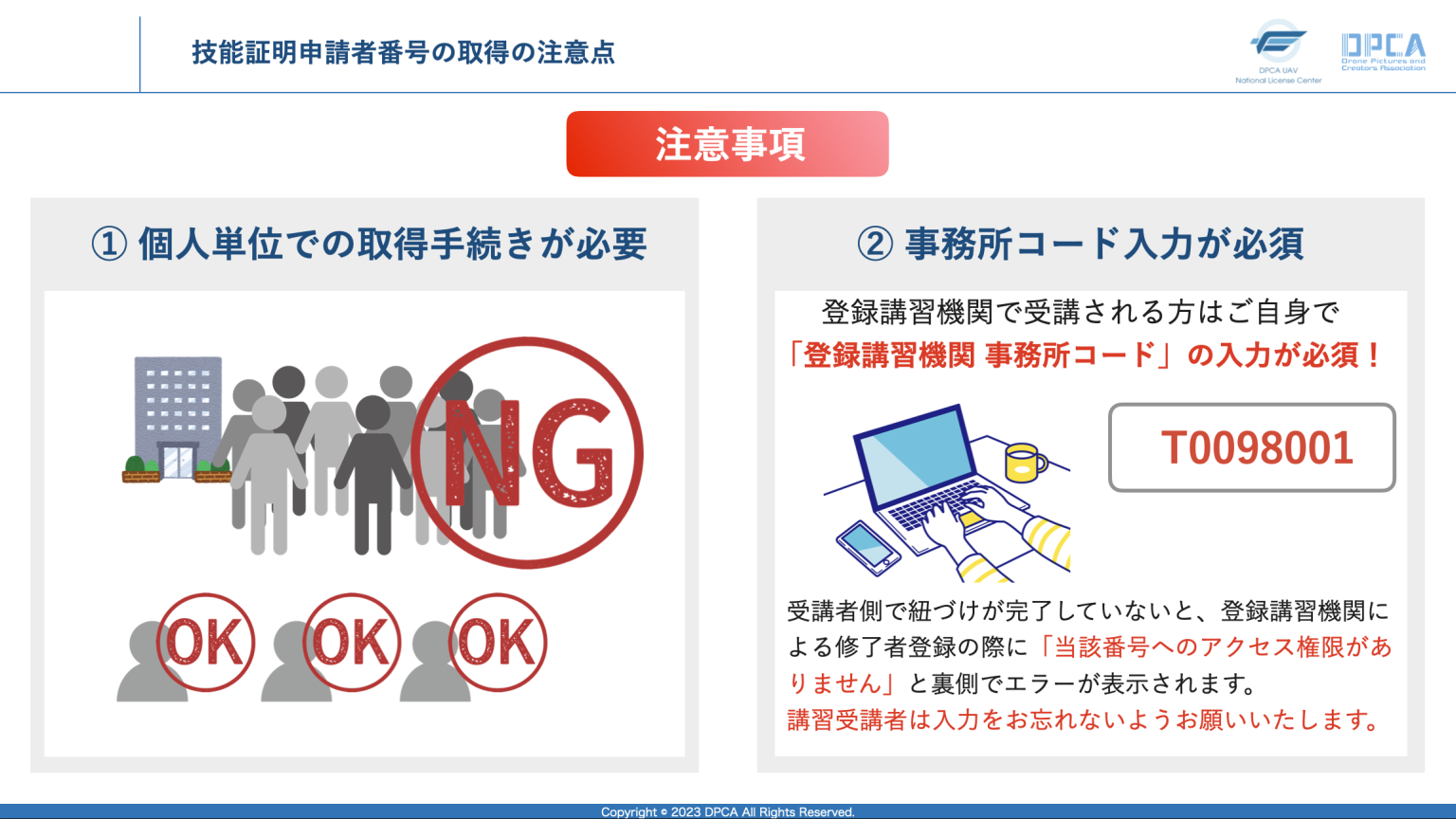
When registering for a new application at the time of reservation, the login ID and password must be set by the applicant themselves.
Example:
Login ID: Your email address
Password: Set freely by yourself
【For Applicants Before Registration】 Click here to download the guidebook
※ The application guidebooks for "Academic Examination Application," "Medical Examination," "Application for Practical Examination Exemption," and "New Issuance of Proficiency Certificate" will be provided directly to training applicants.
【Below National Average – Reasonable Training Fees】
There are registered training organizations located throughout Japan. Each company's website lists the training fees.
The national average cost for an experienced Class 1 training course is approximately 450,000 yen, while the national average cost for an experienced Class 2 training course is around 140,000 yen.
(Based on DPCA administrative research)
DPCA's Training Fees Compared:
Class 1 Unmanned Aircraft Training (Basic)
Practical training: 3 days (including completion examination)
330,000 yen (excluding tax) / 363,000 yen (including tax)
Class 2 Unmanned Aircraft Training (Basic)
Practical training: 1 day (including completion examination)
88,000 yen (excluding tax) / 96,800 yen (including tax)
These fees are significantly lower than the national average.
Additionally, the above fees apply to the "Experienced Pilot Track."
Even when combining the private qualification training (Experienced Certification Course) with the national qualification training, the total cost to obtain a Class 2 national qualification can be kept under 200,000 yen!
We encourage you to compare our training fees with other schools!
✅ Check out our online briefing session (video)♪
【For Beginners】
Start with the Experienced Certification! Click here for details and application for private license training♪
【For Experienced Pilots】
Highly Recommended! Click here for details and application for Class 2 Unmanned Aircraft Training♪
Click here for details and application for Class 1 Unmanned Aircraft Training♪
【For Those with a Long Break from Flying】
1-Day Class 2 Completion Exam Preparation Course
【Trial Briefing Session】 Click here for schedule and application
No Official Definition Set by the Government
There is no officially defined standard by the government. Please refer to the following guidelines:
〈 Definition of an Experienced Pilot by the National Unmanned Aircraft License Center 〉
① Holders of a Private Skill Certification issued by a training organization listed on the Ministry of Land, Infrastructure, Transport and Tourism (MLIT) website (with at least 10 hours of flight experience).
※ The private skill certification must be valid.
OR
② Those who have at least 10 hours of unmanned aircraft flight experience at the time of application for the National License Experienced Pilot Training Course and can submit proof electronically or via documents for review.
Eligibility is determined by the Director of the National Unmanned Aircraft License Center.
(Separate fee: 15,000 yen (excluding tax) / 16,500 yen (including tax), including review fee and issuance of the "Experienced Pilot Course Certification".)
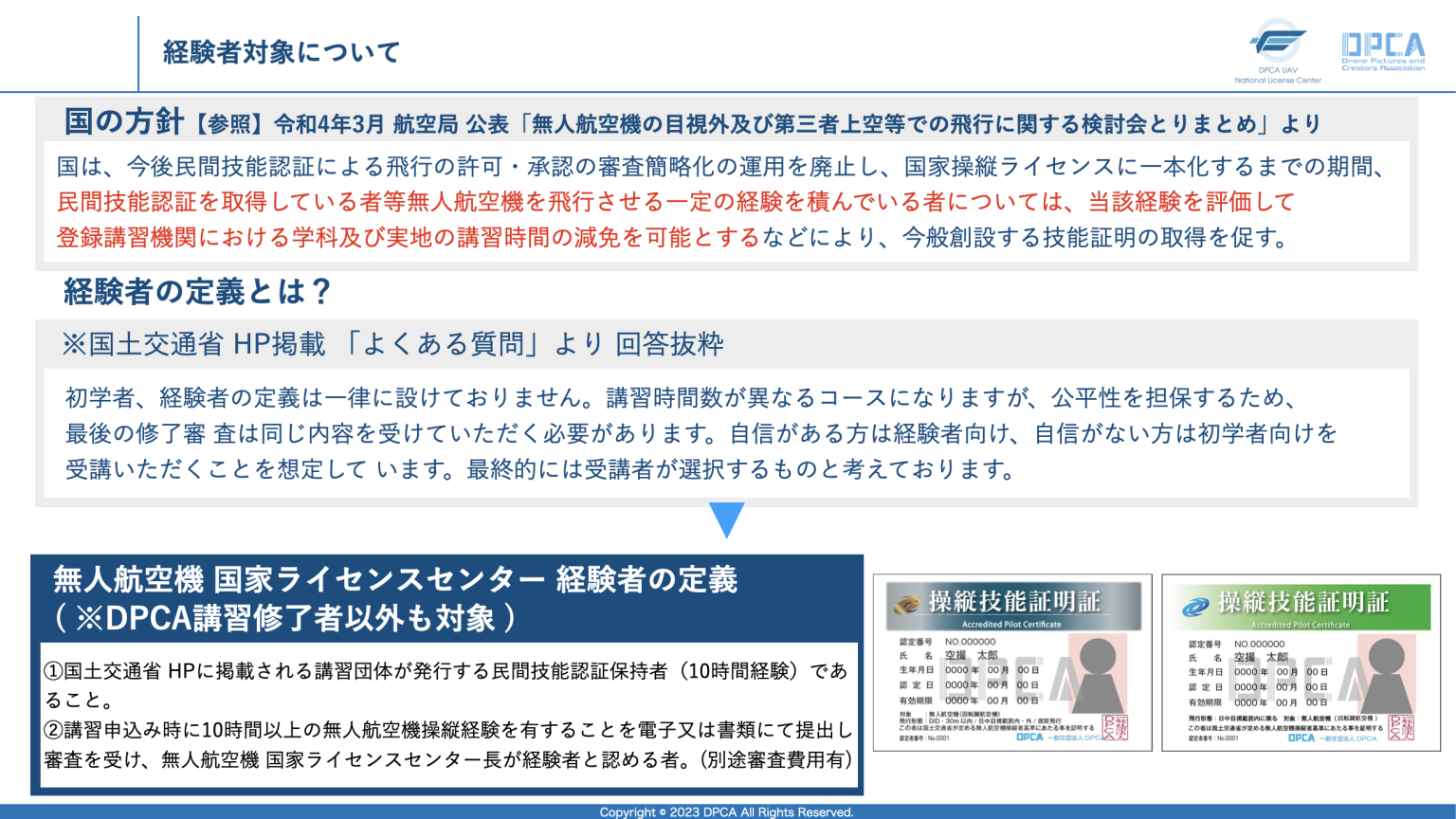
✅ Check out our online briefing session for more details (video)♪
Can You Still Fly a Drone Without a National License?
No, you can still operate a drone by following the conventional procedure of applying for the necessary flight permits and approvals from the government.
However, the Japanese government has announced that it will abolish "Private Skill Certifications" as valid evidence for flight approvals starting December 5, 2025.
This means that after December 5, 2025, obtaining a national license will become essential for drone operations.
(Note: The permit and approval review process for flight operations will still continue.)
✅ Check out our online briefing session for more details (video)♪

### **Recognition as an Experienced Operator & Its Role in Permit Applications and Pilot Identity Verification**
The **[Skill Certification]** issued after completing private training serves as **proof of experience**.
For pilots flying drones in **densely populated areas or restricted zones**, this certification **proves that they have logged at least 10 flight hours**, a requirement for obtaining **flight permits from the Ministry of Land, Infrastructure, Transport, and Tourism (MLIT)**.
This certification also simplifies **the permit and approval application process**, allowing for **fewer required documents and reduced processing time**.
Additionally, in **real-world drone operations**, this certification **validates the pilot’s skills (both knowledge and technical ability)**, offering **clients confidence** in the operator’s proficiency.
### **Upcoming Abolition of Private Skill Certification**
The MLIT website’s FAQ section has **confirmed that private skill certifications will be abolished on December 5, 2025**.
This means:
- Until December 5, 2025, **those with private certification can still qualify as "experienced" pilots** and receive **training hour reductions** in the national licensing courses.
- After December 5, 2025, the **national drone license (技能証明)** will become the sole recognized qualification.
- As a result, **the current "experienced pilot category" may be discontinued, potentially leading to an increase in training costs**.
### **Recommendation for Those Planning to Obtain a Drone License**
If you’re considering obtaining a **drone qualification**, we strongly recommend enrolling in a **private certification course now** to secure **"experienced pilot" status** while it’s still available.
This allows you to **reduce training hours and costs** when applying for the **national drone license** before the transition in December 2025.
✅ Check out our online briefing session for more details (video)♪
※Excerpt from MLIT DIPS **[Frequently Asked Questions]**

### **Private Training Programs**
**[For Beginners]**
Get certified as an experienced operator! Learn more about private license training & sign up here♪
### **Highly Qualified Instructors with Strict Certification Standards**
Our courses are led by instructors who have **met rigorous certification standards**.
To ensure **high-quality training** and maintain our reputation as **Japan’s leading drone school**, we impose **strict certification criteria and intensive training** on our instructors.
This includes not only **advanced piloting skills** but also **personal integrity, ethics, and professional appearance**, all assessed through a **150-point evaluation system**.
Only those who **pass these strict standards** are allowed to teach.
### **"It's Not Just About Where You Learn, But Who You Learn From."**
At **DPCA**, we take pride in delivering **high-quality, satisfying training programs**.
We are confident that our **certified instructors** will provide you with **the best possible learning experience**.
📄 Click here to view DPCA’s instructor certification criteria

### **Drone Pilot License Categories and Flight Limitations**
Similar to **automobile driver’s licenses**, which classify vehicles into **large, medium, standard, and motorcycle categories**, **drone pilot licenses** also have **different categories** based on the type of aircraft you operate.
The **drone pilot license** is categorized into **three main types** based on the aircraft type:
- **Rotary-Wing Aircraft (Multirotor)**
- **Rotary-Wing Aircraft (Helicopter)**
- **Fixed-Wing Aircraft (Airplane)**
Additionally, to **pilot a vertical takeoff and landing (VTOL) aircraft**, you must hold **both the Multirotor and Fixed-Wing Aircraft licenses**.
### **Additional Flight Limitations ("Restrictions")**
Similar to an **automatic transmission restriction** on a driver’s license, drone licenses also include **flight limitations**.
Under **previous private certification systems**, there were **nine** such restrictions, but **under the new national certification system**, there are only **three key restrictions**:
- **Night Flight Restriction**
- **Beyond Visual Line of Sight (BVLOS) Restriction**
- **Aircraft Over 25kg Restriction**
For example, **if you want to operate a drone weighing over 25kg for BVLOS flights over third-party areas**, you must obtain a **First-Class Unmanned Aircraft Pilot License** and then **remove the restrictions** on "Limited to Aircraft Under 25kg" and "Limited to Visual Line-of-Sight (VLOS) Operations".
📷 **Reference Image:**
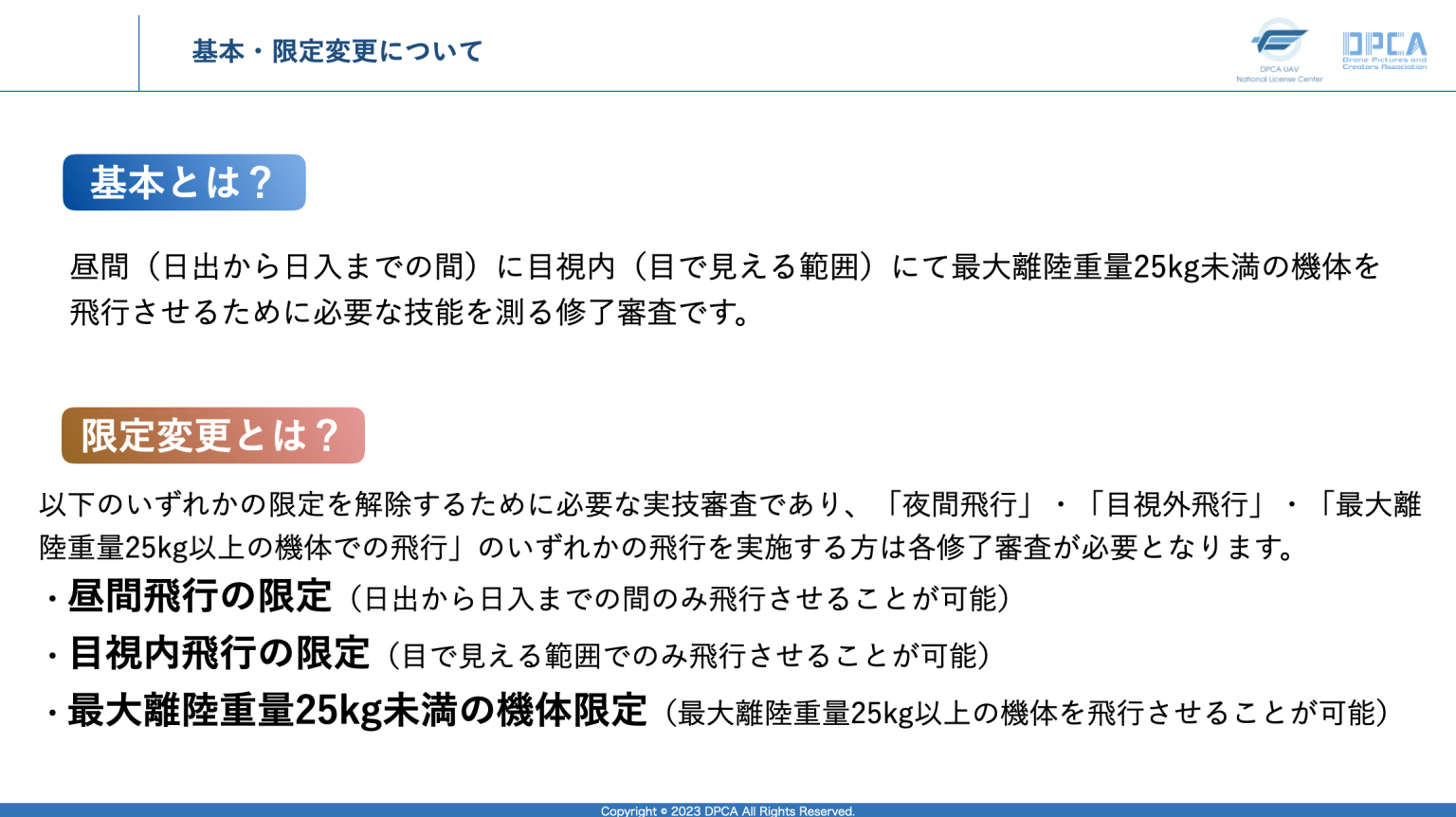
Yes, it is possible.
However, in order to take the proficiency test for "Limited Change", you must first pass the "Basic" proficiency test.
For example, if you are enrolled in both the Second-Class Unmanned Aircraft Training ("Basic" and "Limited Change") consecutively, but fail the "Basic" proficiency test, you can still attend the "Limited Change" training the next day.
However, you will not be able to take the "Limited Change" proficiency test until you reschedule and retake the "Basic" proficiency test on a later date.
Yes, it is possible to obtain the First-Class Unmanned Aircraft Pilot License.
However, both the written exam and the proficiency test required for the First-Class Certification are extremely difficult, so we strongly recommend thorough preparation.
Important Points to Consider:
✅ The First-Class Proficiency Test is conducted outdoors, so prior flight training is essential.
✅ DPCA has successfully helped over 30 individuals pass the First-Class proficiency test.
✅ All instructors for the First-Class course are certified First-Class license holders, ensuring high-quality training and reliable guidance.
If you are an experienced pilot, check the details and apply here:
👉 First-Class Unmanned Aircraft Training Course & Registration
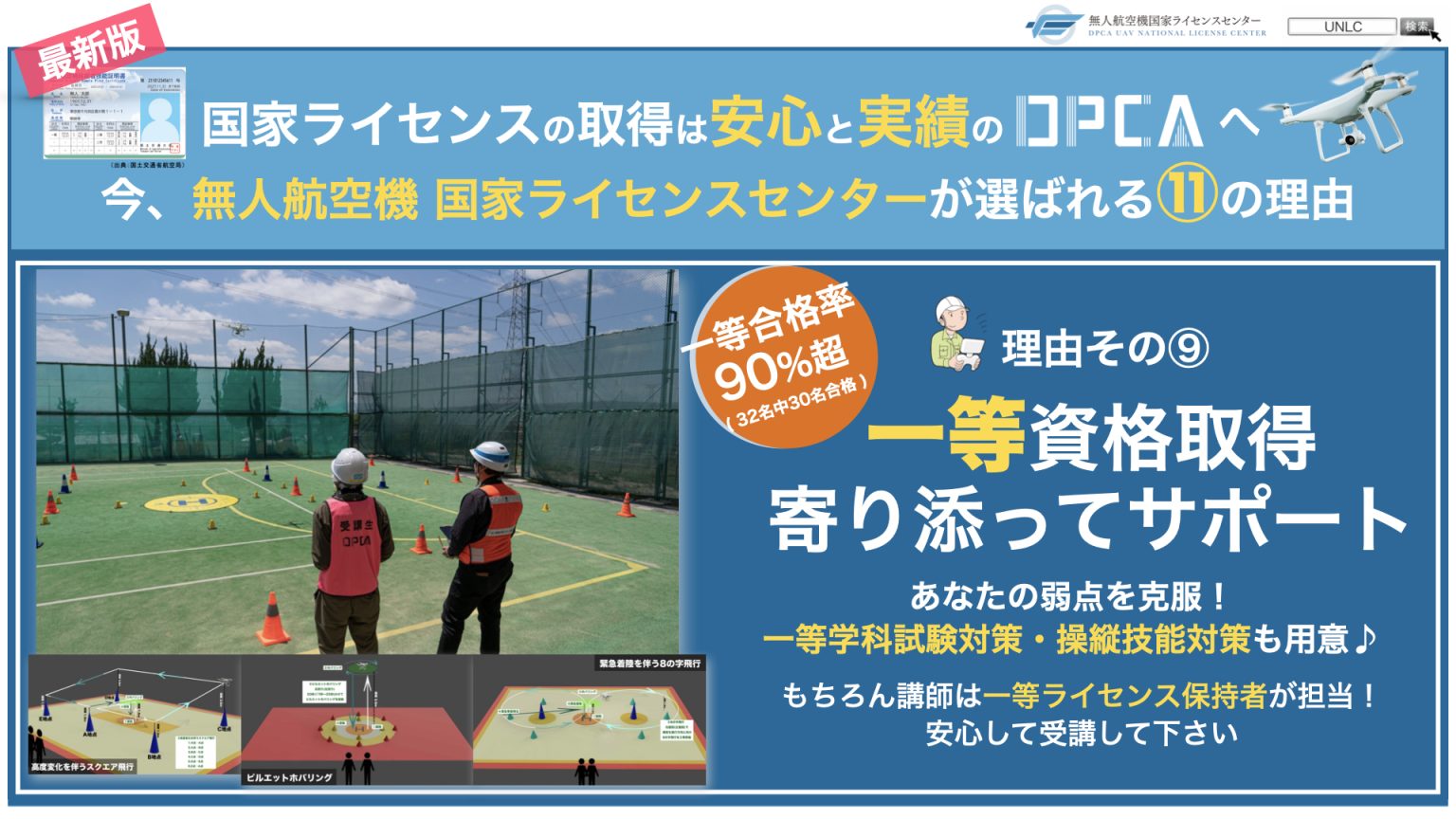
The Second-Class Training for Experienced Pilots under the National License Program is conducted on a tight schedule, where the entire training and proficiency test are completed within a single day.
Given this fast-paced structure, the training session is not designed as an opportunity to "learn" new piloting skills but rather as a "review" and "confirmation" of existing skills.
For individuals who have had a break of more than three months in flight experience or feel uncertain about performing figure-eight flights or operating without GNSS and vision sensors, we have prepared a specialized preparatory course to help you regain confidence and refine your skills.
Our certified instructors will provide personalized guidance to help you overcome weak points and improve your piloting techniques.
Who Should Take This Course?
✔️ If you lack confidence in performing figure-eight flights or operating a drone without vision sensors
✔️ If you haven't flown in over three months and need a refresher
✔️ If you failed a previous proficiency test and want additional practice
✔️ If you want to understand the difficulty level of the Second-Class Proficiency Test
If you have any questions about the preparatory course, please contact the DPCA Headquarters Office.
📞 DPCA Headquarters Office Contact:
Phone: 075-585-6205 (Main)
✅ Watch the Online Information Session Video Here
Assuming that this inquiry pertains to the academic examination required for obtaining the Unmanned Aircraft National Qualification (Proficiency Certificate), the test must be taken using the CBT (Computer-Based Testing) method conducted by a designated testing organization.
DPCA does not operate or manage the academic examination.
For details on how to take the academic examination, please refer to the official website of the designated testing organization below:
🔗 Unmanned Aircraft Remote Pilot Exam – Official Website
📝 Important Notes:
"Academic Exam Application", "Medical Examination", "Practical Test Exemption Application", and "New Issuance of Proficiency Certificate" are procedures explained in a detailed application guide, which will be provided directly to training applicants.
📷 Reference Image:
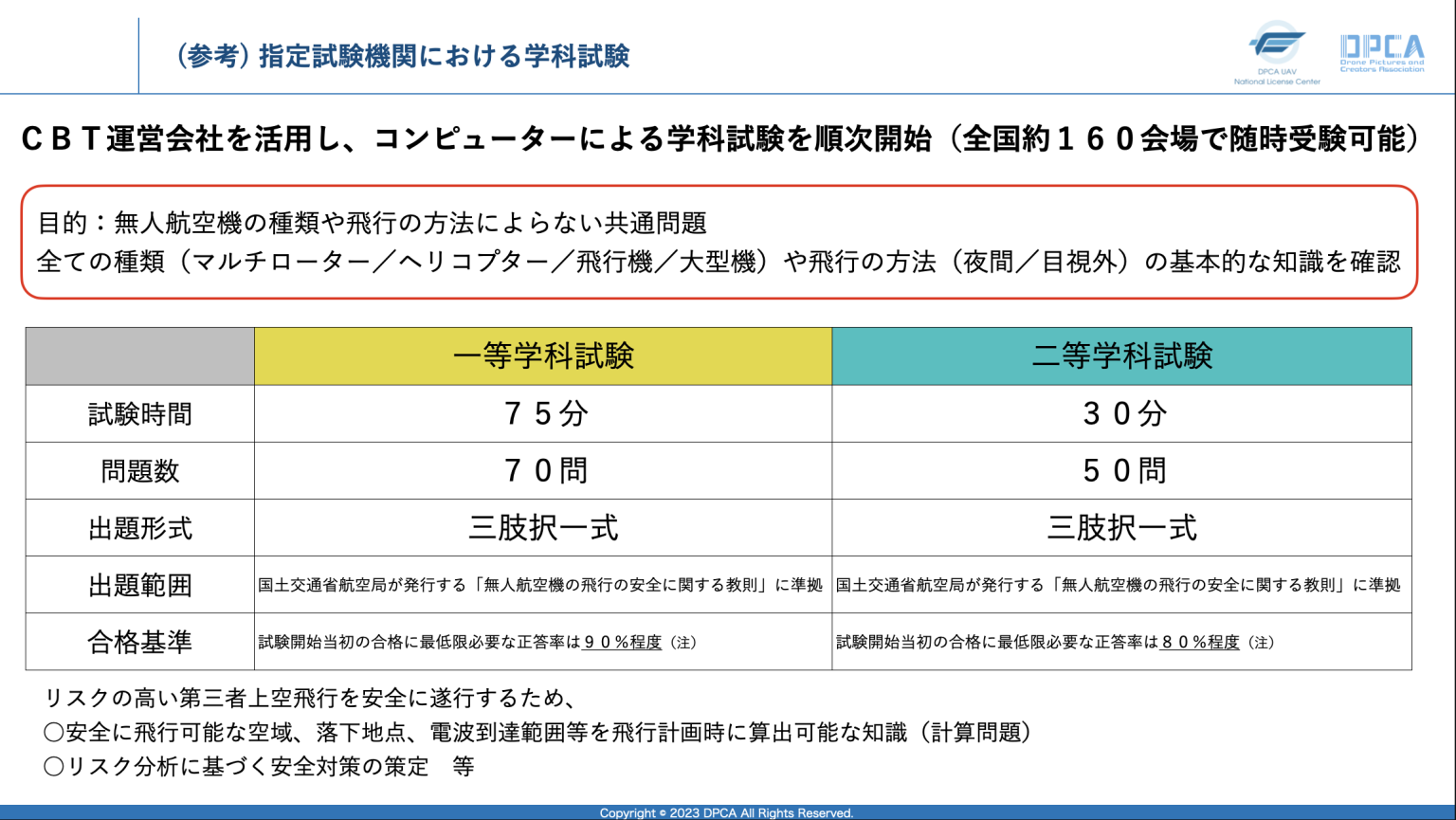
The examination follows a three-choice multiple-choice format (三肢択一式).
📝 Number of Questions & Time Limits:
First-Class Proficiency Certificate (一等): 70 questions in 75 minutes
Second-Class Proficiency Certificate (二等): 50 questions in 30 minutes
📖 Source of Exam Questions:
All questions are derived from the "Guidelines on Unmanned Aircraft Flight Safety" (無人航空機の飛行の安全に関する教則), which was officially released on September 5, 2022.
📌 Sample Questions:
First-Class Exam Sample Questions (MLIT)
Second-Class Exam Sample Questions (MLIT)
📺 Want to Learn More?
✅ Watch an Online Information Session Here!
📌 No Exemption for Academic Exam in Registered Training Institutions
Even if you complete training at a registered training institution, the academic exam is NOT exempted.
📍 Steps to Take the Academic Exam:
Register as a User on the "Exam Registration System" through the designated examination institution's website.
Select a Test Center from the nationwide locations.
Take the exam in CBT format (Computer-Based Testing) at the selected venue.
Pass the exam to proceed with the licensing process.
📝 Important Notice:
We will notify you once the "Exam Registration System" becomes available on the designated testing institution's official website.
✅ Yes, the Unmanned Aircraft National License Center offers exemptions for academic lectures.
📌 How to Apply for Academic Lecture Exemption
Provide Your Academic Exam Pass Certificate Number
Enter the "Academic Exam Pass Certificate Number" from the exam registration system at the time of application.
On the day of your practical training, you must show the screen displaying this number.
If you fail to enter the number during application or present the proof on the training day, the exemption will not be granted.
Application Process
Proceed with the regular application for First-Class or Second-Class Basic Training.
The initial displayed fee will reflect the academic lecture exemption price.
In the optional selection section, choose:
➝ "I have obtained the First-Class or Second-Class Academic Exam Pass Certificate Number"
OR
➝ "I have NOT obtained the First-Class or Second-Class Academic Exam Pass Certificate Number"
Payment Information
If paying by credit card, the fee will automatically adjust at checkout.
If paying by bank transfer, ensure you send the correct amount:
With academic lecture → 85,800 JPY (tax included)
With exemption applied → 74,800 JPY (tax included)
📍 Mandatory Textbook Purchase
DPCA requires all students to purchase the official academic and practical training textbooks to maintain high safety and compliance standards.
Textbook fee: 10,000 JPY (tax excl.) / 11,000 JPY (tax incl.)
📸 Reference Image:

【 whole book (version) 】
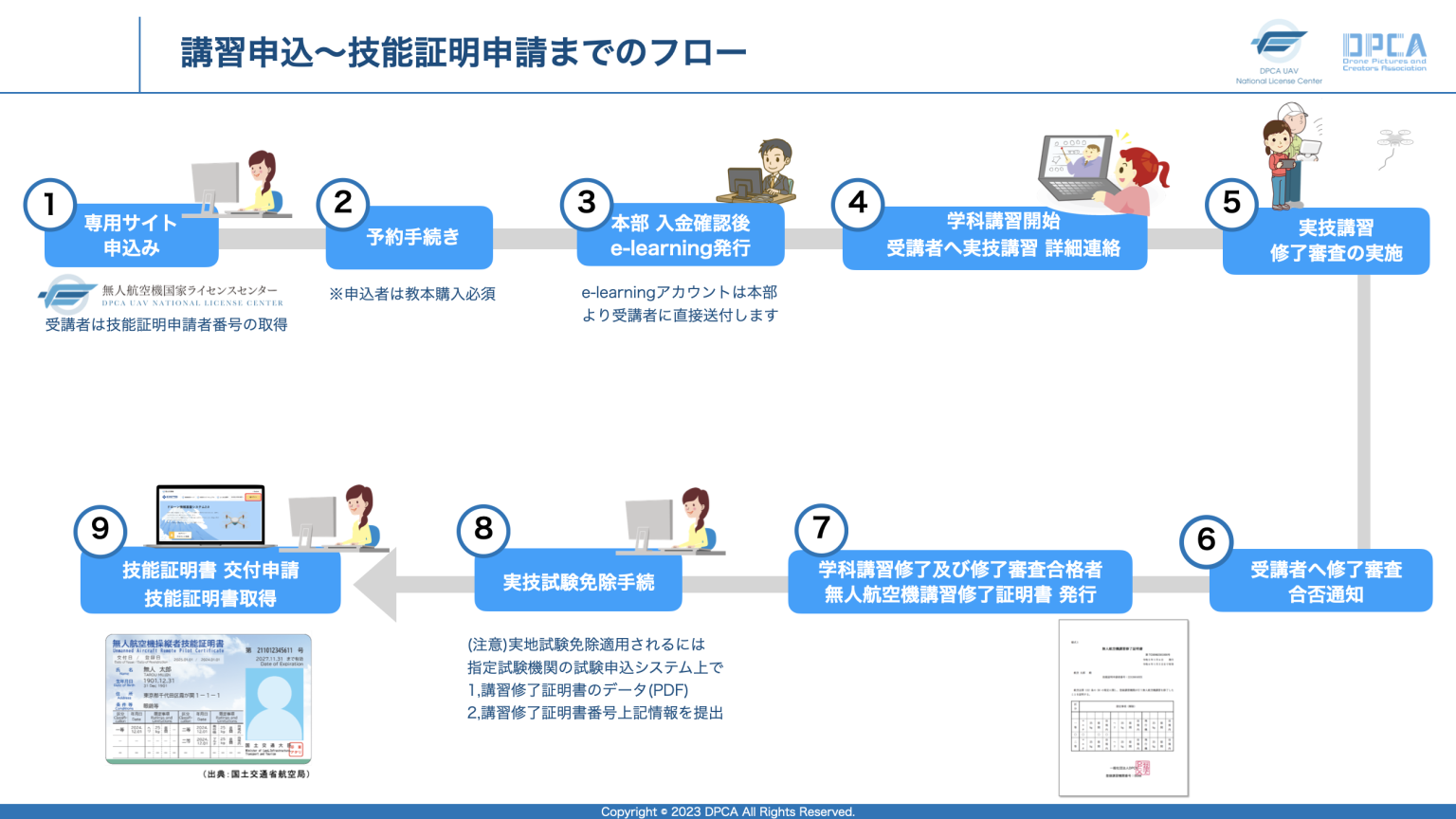
【 After the course Detailed version 】
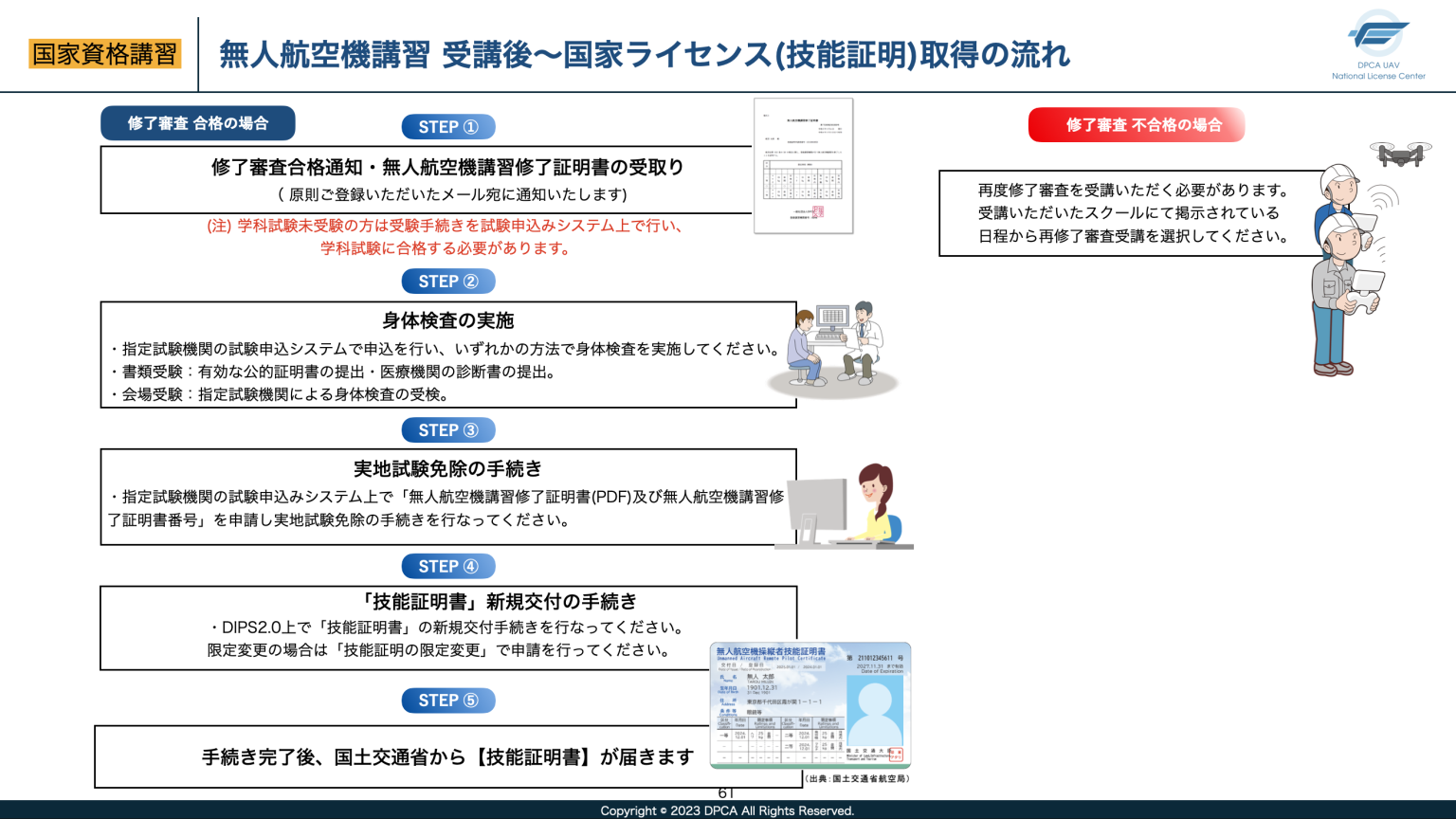
✅For more information, check out the online information session (video) ♪
✅ Yes, cancellations are allowed, but cancellation fees will apply according to DOCA’s cancellation policy.
📌 Cancellation Fees
8 days or more before the course → Free (No charge)
7 to 4 days before the course → 20% of the course fee
3 to 2 days before the course → 50% of the course fee
1 day before the course → 80% of the course fee
Same-day cancellation / No-show → 100% of the course fee
📍 Important Notes:
Cancellations must be made in advance following the proper procedure.
Refunds, if applicable, will be processed according to DOCA’s refund policy.
Contact the DPCA office for cancellation inquiries.
To obtain a drone pilot license (skill certification), a medical examination is required.
📌 Medical Standards:
For First-Class (under 25kg) and Second-Class licenses, the criteria are equivalent to a standard driver's license medical test.
✅ Vision:
Both eyes: 0.7 or higher
Each eye: 0.3 or higher (Corrective lenses allowed)
✅ Color Vision:
Must be able to distinguish red, blue, and yellow
✅ Hearing:
Must be able to hear a 90-decibel alarm from 10 meters (Hearing aids allowed)
✅ General Health Condition:
Must not have any physical condition that could impair drone operation
📍 Required Documents for Medical Examination:
A public certificate or a medical certificate from a doctor must be submitted to the designated testing institution.
📑 Acceptable Documents:
Driver’s License (except for First-Class licenses over 25kg)
Aviation Medical Certificate (for aircraft pilots)
For Second-Class licenses, submitting a driver's license or an equivalent document is sufficient.
If you fail the completion assessment, you will need to retake the examination.
📌 How to Schedule a Re-examination:
1️⃣ Select a re-examination date from the schedule posted by the school you attended.
2️⃣ Alternatively, coordinate with the course instructor to arrange a suitable date for re-examination.
📍 Optional Preparatory Course Before Re-examination
Before your re-examination, you can take a preparatory course to review and improve your piloting skills.
✅ Recommended for:
Those with a long gap in piloting experience
Those who failed the completion assessment and want additional practice
🔗 One-day Preparatory Course for Second-Class Re-examination
To facilitate Level 4 drone operations, the government has classified flights into three risk-based categories and applied specific regulations accordingly.
🛫 Flight Categories:
1️⃣ Category I – Low-risk flights
Flights that do not require permission or approval under current aviation laws.
2️⃣ Category II – Moderate-risk flights
Includes beyond visual line-of-sight (BVLOS) operations with a restricted flight area to prevent flying over third parties.
Requires permission/approval under current aviation laws.
3️⃣ Category III – High-risk flights (e.g., Level 4 operations)
Includes flights over third parties, making it the highest risk category.
Currently not permitted under existing aviation laws.
📜 Regulatory Requirements:
📌 Category III Flights (e.g., Level 4 operations)
Must obtain aircraft certification (Type 1) and a First-Class Pilot License.
📌 Category II Flights (general operations)
Aircraft certification (Type 2) and a Second-Class Pilot License are required.
If the pilot ensures proper safety measures, individual flight approvals are not required.
📺 ✅ Watch the Online Seminar for More Details
Level 4 flight refers to autonomous beyond visual line-of-sight (BVLOS) operations over populated areas (third-party airspace) without a visual observer, which is currently not permitted in Japan.
What Happens When Level 4 Flights Are Approved?
Once approved, drones will be able to operate autonomously across most of Japan, except in restricted areas such as Self-Defense Force bases and embassies.
Key Impact Areas – Logistics Industry 🚚
The biggest impact of Level 4 approval is expected in logistics, where autonomous drones could be used for package delivery and other transportation services.
Strict Regulatory Requirements ⚠️
To conduct Level 4 flights, operators must obtain:
✔ Type 1 Aircraft Certification
✔ First-Class Pilot License
✔ Approval for Each Flight Operation
Given these high regulatory requirements, operating Level 4 drones will remain challenging for most businesses.
📺 ✅ Watch the Online Seminar for More Details
No, it is not necessary.
During the practical training, we will provide the required drones, so you do not need to purchase one in advance.
Additionally, during the training session, we will introduce recommended drones for practice as well as the best drones suited for different types of professional applications.
The minimum age requirement is 16 years old.
However, for applicants aged 16 or 17, parental consent is required.
There is no upper age limit for enrollment.
Our training system ensures a safe and comfortable learning experience for beginners. This is because we adopt the override control system.
What Is the Override Control System?
The trainee's transmitter and the instructor's transmitter are linked together.
If the trainee makes a dangerous maneuver, the instructor can immediately take control and safely guide the drone.
This system allows beginners to operate drones with confidence and safety.
Recommended Learning Path for Beginners
Instead of jumping straight into the national license training, we highly recommend that beginners start with a Private Skill Certification Course (Experience Recognition Course).
Benefits of Taking the Experience Recognition Course First:
✅ Learn basic drone piloting skills before pursuing a national license.
✅ Reduce both the required training hours and costs for obtaining a national license.
📌 Start with the Experience Recognition Course Here:
👉 Enroll in the Experience Recognition Course
✅ Watch our online information session here:
👉 Check the Video
The override control system is similar to the dual control system in driving schools, where the instructor has access to the steering wheel and brake pedal in the passenger seat.
How Does It Work?
The system consists of two linked transmitters:
Master Transmitter (Instructor)
Trainee Transmitter
The instructor's master transmitter can override (overwrite) the trainee's commands.
If the trainee makes a dangerous maneuver, the instructor can immediately take control and safely guide the drone to a secure position.
Beginners can confidently operate drones with an added layer of safety.
Adoption in the National License System
The override system is also used during skill certification exams in the national drone pilot licensing system.
At DPCA, we have been implementing this system in our training since 2016.
✅ All DPCA instructors are trained and certified to operate the override system!
📌 Experience safe and structured drone training with DPCA!
First-Class Drone Pilot License (Level 4 Flight)
Main Benefit: Allows flights over third-party areas.
Enables "Level 4 flights," meaning autonomous, beyond-visual-line-of-sight (BVLOS) operations without an observer, opening up new possibilities in drone-based logistics, infrastructure inspection, and urban air mobility.
Second-Class Drone Pilot License
Third-party airspace is not allowed.
However, certain flights that previously required government approval can now be performed without permission for up to three years, provided safety measures are taken.
(Safety measures include creating and complying with a safety flight protocol.)
Flight Conditions Based on Categories
Flying Outside Third-Party Airspace (Category II)
Case ①
Obtain Second-Class Pilot License and Type 2 Aircraft Certification.
Implement safety measures.
Still possible to fly with traditional government approvals.
Case ② (Additional Considerations)
Some high-risk flights still require individual government approvals, such as:
Flights near airports or emergency zones
Above 150m altitude
Over event venues
Transporting hazardous materials
Dropping objects or operating drones over 25kg
However, holding the pilot license and aircraft certification helps streamline the approval process.
Flying Over Third-Party Airspace (Category III – New System)
Requires First-Class Pilot License and Type 1 Aircraft Certification.
Each flight still requires government approval.
📌 If you're considering Level 4 operations or advanced drone missions, the First-Class License is the way to go!
✅ Watch our online seminar for more details!
🔗 Watch the Online Seminar
With the introduction of the National Drone Pilot License System, DPCA has been actively participating as a key organization in the "Pilot & Operations Manager Skills Working Group" since July 2021.
This group is responsible for shaping the new licensing framework, and DPCA leverages its 7+ years of expertise to contribute to its development.
As a result, we can confidently provide you with precise information and the correct operational knowledge needed for compliance and success under the new system.
📢 Stay Updated with the Latest National Drone License Information!
💬 Join the DPCA Official LINE for Exclusive Updates
👉 Click Here to Join the Official LINE
✅ Watch Our Online Seminar for More Details!
📺 Watch the Online Seminar
For more details, please contact the DPCA Office directly!
Our representatives will be happy to provide you with all the necessary information. 😊
📍 General Incorporated Association DPCA Office
🏢 Address: 10-2 Nishi Iwamoto-cho, Higashi-Kujo, Minami-ku, Kyoto, 601-8005, Japan (Ilias Office 3F)
📞 Phone: 075-585-6205 (Main Line)
Feel free to reach out to us! 🎉
Credit cards that can be used for payment are as follows
